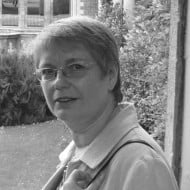In our society, death is still something of a taboo subject that many people do not like to think about, let alone talk about. Bereaved people can find that well-meaning friends can avoid them or avoid mentioning the death for fear of upsetting them. Also, families tend to be more fragmented: children move away to find work, or older couples retire to rural or seaside communities.
Both of these factors can mean that, when one partner dies, the other feels very isolated. When a close relative or friend dies, thoughts and feelings may occur which are difficult to deal with or understand; they may even become overwhelming. There can also be health issues such as anxiety, depression, poor appetite and sleep disturbance to cope with.
Where there are difficult or complicated circumstances surrounding the death, such as suicide, homicide or the death of a child, it can be almost impossible for family members to talk to each other about what has happened.
It is widely recognised that talking to a trained bereavement supporter can help in all of these situations.
Founded in the 1950s as a local support group for widows, Cruse Bereavement Care is now the UK’s largest bereavement charity. Although a non-religious organisation, the name Cruse comes from the bible story of the widow’s cruse or container which had an unfailing supply of oil, symbolising that, in bereavement work, a continuous source of light and nourishment is provided through dark times.
Cruse has over 70 branches manned by over 6,000 trained, experienced volunteers and provides free face-to-face support as well as telephone and e-mail support, bereavement groups and information about bereavement. Last year, nearly 40,000 bereaved people in the UK received one-to-one support from Cruse, the majority of them referred by their GP.
Until very recently, there was no Cruse branch in Lincoln. This gap has now been filled by a small group of volunteers, and the new branch will offer free one-to-one support to bereaved individuals in their own home or at a counselling room in the centre of Lincoln. A monthly meeting in Lincoln where bereaved people can come and share their experiences with others will also be held.
The new branch will need to grow in order to cope with what is expected to be a steady demand from local people. A training course for new support volunteers is going to be held in Lincoln, starting in March. The course will take place over a number of Saturdays and will cover all aspects of bereavement care and support.
If you would like to find out more about the services Cruse can offer in Lincoln, or about becoming a support volunteer, call 01522 684290 or e-mail [email protected].





